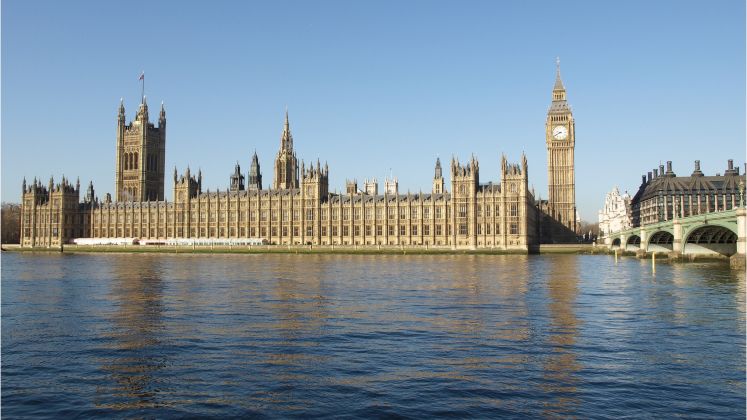Earlier this month, Former UK Prime Minister Boris Johnson resigned as an MP, ahead of the verdict from a Commons investigation into his conduct. Following this latest blow, Pippa Catterall and Robert Williams discuss the prospects of Johnson mounting yet another comeback in UK politics.
How, you might ask, can Boris Johnson bounce back from this one? How can the man who made so much of British politics over the last decade about him rather than the policy issues besetting the UK possibly recover from the latest revelations of his multiple character flaws? How can a man who has already been sacked twice for lying escape the consequences of his indifference to truth a third time given the litany of lies exposed in the Privileges Committee report?
Yet Johnson has already dodged being sacked a third time for lying by resigning immediately from Parliament. Jumping before he was pushed was undoubtedly calculated, as with everything Johnson does when it concerns furthering his own self-interest. His object was to get his denial in first, hence his deliberate leaking of parts of the report and appeal to the public against Parliament. As usual, in doing so he has been able to count on the bully pulpit afforded him by his friends and lackeys in the right-wing press.
A unique approach to the truth
Johnson has never traded in truth and lies. Indeed, to focus on the veracity of anything he says is to misinterpret how he operates. It is misleading to label Johnson a liar, or even a congenital liar. It is not that he cannot tell the truth or does not care to. It is more that he does not seem to care what the truth is nearly as much as he cares about the effects produced by what he says.
Although Johnson’s classical erudition has been exaggerated, he does nonetheless conspicuously borrow from a particular tradition of ancient Athens. Therein there was a branch of rhetoric known as sophistry, which might be explained briefly as the art of making the worst argument seem the best. Such techniques, picked up at public school debating societies, are at the heart of the casual ambiguities and misrepresentations purveyed by Johnson, Jacob Rees-Mogg and their chums in contemporary public life.
Depicting Johnson as a liar is to credit him with a moral compass he does not appear to possess.
To describe Johnson as a liar is therefore misleading. To lie you must know and care what the truth is in the first place. Depicting Johnson as a liar is thus to credit him with a moral compass he does not appear to possess. Rather, he is a dissembler and deceiver. He seeks to deceive his audience via vague and ambiguous speeches, denials, and evasions. His aim is not simply to lie to protect himself, but also to deceive others. All of which raises the question of the purpose of the latest deceit Johnson has served up to a too willing press, increasingly sceptical Parliament and overly credulous public.
Tried and tested tactics
One thing it is not intended to do is to put Johnson’s case. Instead, it is designed to bolster his claim that there is no case for him to answer. On the face of it, this is a ludicrous claim. After all, there is a wealth of evidence against him. How does Johnson deal with that? By flatly denying it and claiming that it has all been cooked up, he treats it as if it does not exist. The evidence against Johnson is rhetorically presented as the malicious, and by implication mendacious, fabrications of Johnson’s enemies.
It might seem absurd for Johnson to present himself as a wronged man, the victim of an Establishment blob. Yet he has got away with this kind of rhetorical sleight of hand for years. His latest tactics simply continue to use the same scapegoating he has long employed. Not for the first time, he is suggesting that what matters is not the evidence, but the supposedly suspect motives of those who presented it.
Johnson disingenuously dismissed the Cameron government’s efforts to inform the public about the consequences of Brexit in the run-up to the 2016 referendum as a conspiracy. In the same way, Johnson is now portraying the latest evidence against him as not worth reading either.
In this, he is on reasonably safe grounds, because he knows that most of the public will not read the report. By playing the victim and letting his remaining band of friends in the media fog the issue, the aim seems to be to ensure that the report’s devastating indictment of Johnson’s conduct is blunted by casting doubt on its credibility. The means are simple: the deceiver accuses those against him of being themselves deceitful.
Playing the victim
Meanwhile, Johnson’s strategically early departure from Parliament ensures that he cannot answer the case against him there. More importantly, he cannot be called upon to do so either. This avoids him having to confront rather than dismiss the evidence. This is not just cowardice. It also serves his purpose of claiming that he was the victim of a kangaroo court, a claim he will no doubt amplify as much as possible from his new bully pulpit in the Daily Mail.
This leaves the question of how much traction Johnson’s tactics are likely to have. After all, Johnson playing the victim is an unedifying spectacle. The only things he is a victim of are the psychological traits instilled by his upbringing, including his overweening egotism. He is therefore instead concentrating on seeding the fertile soil of conspiracy theory politics.
There are numerous drivers of the rise of this phenomenon. Johnson has been a beneficiary of this process and sought to encourage it. He is now seeking to harness it to his cause again. His efforts to do so are not necessarily in vain. When something like 30-40 per cent of the British public claim to believe in bizarre right-wing conspiracies like the Great Replacement hoax, it is all too possible that these same groups will also be persuaded to see Johnson’s fall as a conspiracy rather than the consequences of his own failings. Johnson at the Daily Mail will no doubt do all he can to encourage such misapprehensions.
Such efforts may prove to be doomed to failure. However, sober reflection on Johnson’s current tactics makes clear that he does not think his baleful effects on British politics have yet come to an end. Nor should we.
All articles posted on this blog give the views of the author(s), and not the position of LSE British Politics and Policy, nor of the London School of Economics and Political Science.
Image credit: Number 10, Attribution-NonCommercial-NoDerivs 2.0 Generic (CC BY-NC-ND 2.0)







